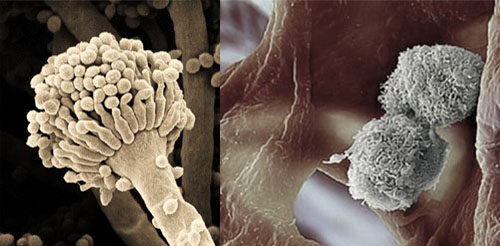Efthymia I. Matthaiou, PhD
Education
- Stanford University 2020Postdoctoral Fellowship
- University of Pennsylvania & Democritus University of Thrace2017PhD
- Democritus University of Thrace2011BSc
Research
Research Interests
My lab is interested in translational research with a focus on pulmonary diseases in immunocompromised persons. Using murine models of airway infection, we have identified modifiable risk factors that may promote pathogen invasion in immunocompromised patients. We hope that these discoveries will lead to novel treatments for these prevalent infections.

Fungal infections
In response to the rising threat of fungal infections, combined with existing and emerging resistance and treatability issues, we prioritize research of emergent fungal pathogens, considering their unmet research and development needs and perceived public health importance. Our research is focused but not limited to Aspergillus fumigatus (Af) related diseases.
Host-pathogen interactions
Macrophages are a key cell type in innate immunity. Years of studies have unraveled myriad macrophage pathways that combat pathogens and demonstrated how pathogen effectors subvert these mechanisms. Our lab is interested in the macrophages found in the airway microenvironment. We intend to identify microenvironmental factors that impact macrophages differentiation and function. Furthermore, we aim to identify the fungal mechanisms used to evade immune response.
Therapeutic platforms
The treatment of fungal diseases is challenged by limited access to treatment as well as emergence of antifungal resistance in many settings. Our lab works toward developing targeted therapeutic platforms for fungal infections using nanodelivery of novel drugs and biologics.
Novel diagnostics
Innovative approaches are needed to optimize and standardize the use of current fungal diagnostic modalities globally. The diagnosis of Aspergillus species is challenged by limited access to quality diagnostics. Our lab is pursuing the development of novel diagnostic methods for the Aspergillus species associated with human disease.
Artificial Intelligence (AI)
People are at high risk of developing various diseases due to current environmental and health conditions and living habits. The identification and prediction of fungal infections at their earlier stages is very important, in order to administer the right therapies and prevent their extremity. Our lab aims to gather relevant data build predictive algorithms to identify patients that are in higher risk to develop aspergillosis.